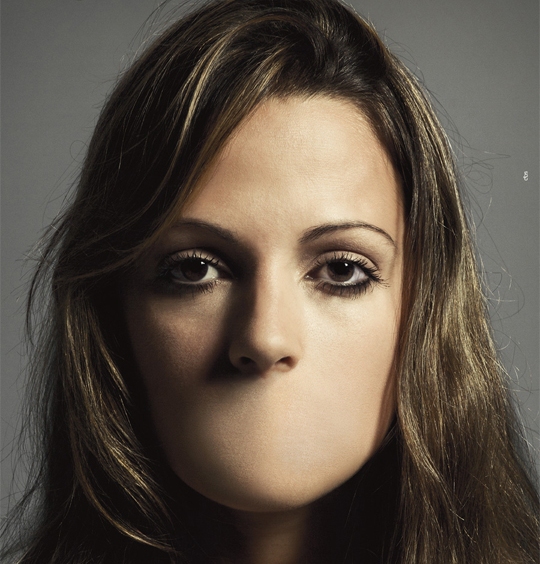FWP:
SETS == MUSHAIRAH
BELOVED HAS NO MOUTH:
The beloved's mouth is so beautifully small that in the hyperbolic ghazal world it shrinks to the vanishing point, so that it actually becomes nonexistent, as in the present verse. Some other verses that play on the
beloved's having no mouth: {24,7}; {91,2};
{101,8}; {183,8} // {293x,1}. Just for the record, she also has no waist: on this see {99,4}.
(For a bizarre verse that deprives her of fingers, see {50,8x}.)
On the idiomatic uses of hī sahī , see {148,1}.
Kisses and abuses, and paradox. Even if the beloved claims-- perhaps even legitimately-- that her virtually nonexistent mouth means that she can't give kisses, nothing will stop her from delivering abuse (says the lover wryly). But if she doesn't abuse him, he will beg her for abuse anyway. Abuse is, after all, almost part of her job description. It's also a form of relationship between them, since anything is better than her indifference; for an absolutely straightforward statement of this fundamental truth, see {148,2}.
But of course, how can a person without a mouth have a (functioning) tongue? This is the paradoxical and amusing question, the one that makes it clear that the whole verse is tongue-in-cheek (sorry, sorry!) and part of an ongoing exchange of repartee. It's also part of the wit that makes this one such an enjoyable mushairah verse.
Josh's observation is intriguing. If this theme fell into
disfavor over time, was it perhaps because of the increasing cult of 'natural
poetry'? Obviously, the more you think of lover and beloved as real people,
the more vulgar and distasteful is the idea of the beloved abusing the lover.

Nazm:
By kiss is intended a kiss of the mouth-- and when the beloved doesn't have even a mouth, then how could one kiss her or receive a kiss from her? But a tongue is still present to give abuse-- how could that be dispensed with? (90)
== Nazm page 90